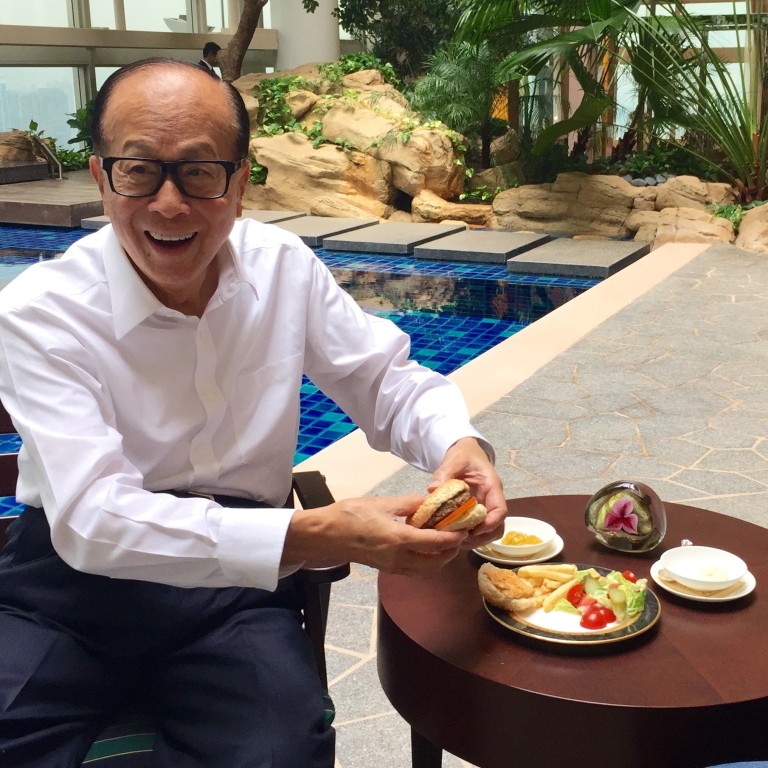
Meatless meat revolution kicks off in Hong Kong, where Li Ka-shing puts his money where his mouth is
- Beyond Meat and Impossible Foods, backed by heavyweights such as the Hong Kong tycoon, see the city as key to global ambitions
Hong Kong has emerged as a key battleground for the hearts, minds and stomachs of Asian meat eaters, as Beyond Meat and Impossible Foods – the two most prominent meatless meat producers – fight for market share.
Both companies, which make plant-based products that closely resemble burgers, sausages and minced meat products, have received backing from heavyweight investors anticipating a change away from animal consumption. Hong Kong tycoon Li Ka-shing, known to enjoy meatless meat himself, has invested in Impossible Foods through his private-equity unit, Horizon Ventures, joining the likes of Singapore sovereign wealth fund Temasek and US hedge fund Viking Global. Beyond Meat has received investment from Bill Gates and Leonardo DiCaprio.
The meatless meat market was further boosted on Thursday, after shares in Beyond Meat soared 160 per cent to US$65.75 on their trading debut on the Nasdaq in New York, from an initial public offering price of US$25. The listing values the company at US$3.8 billion.
And although Beyond Meat said it might never be profitable, its revenue has jumped from US$8.8 million in 2015 to US$87.9 million last year.
Both companies have partnered with North American fast-food burger chains, such as Burger King and A&W, to raise their profile and that of plant-based meat products.
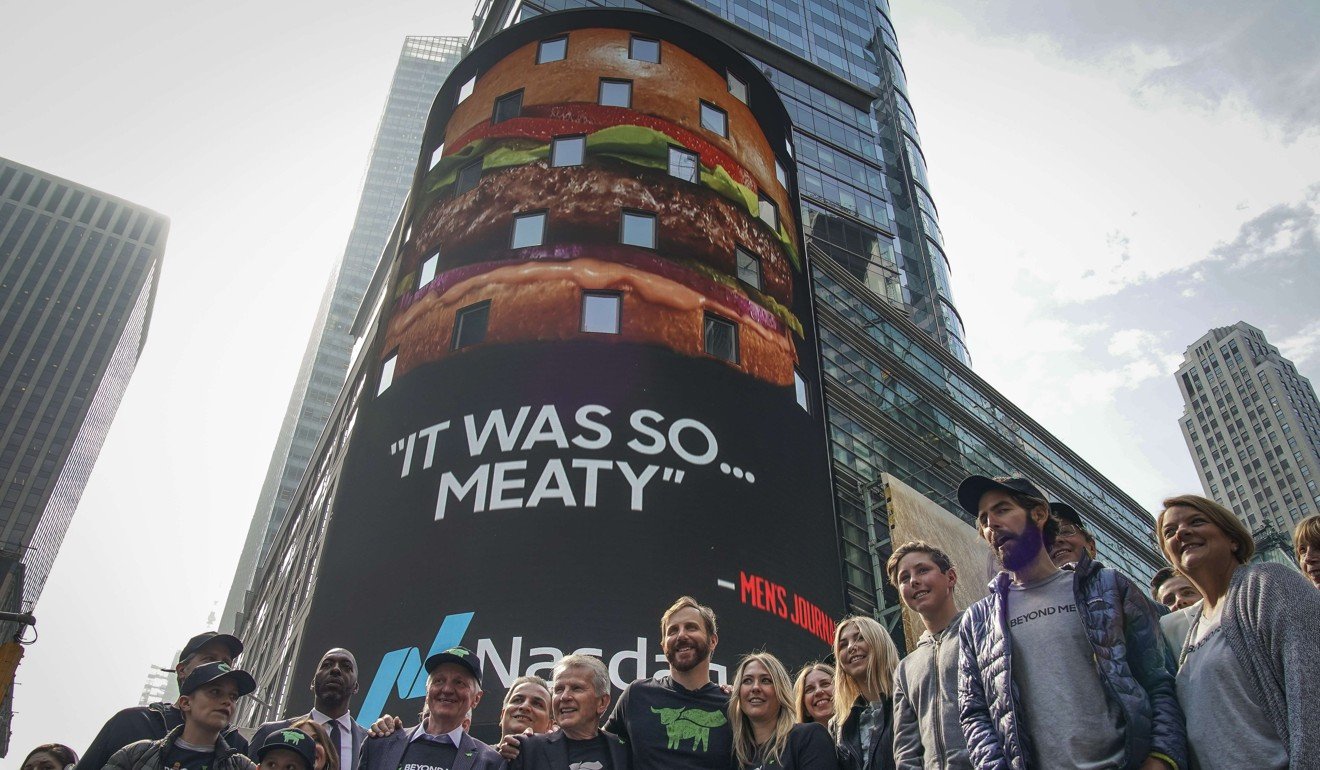
In Hong Kong, they have chosen to win over retail customers and access other markets in the region by getting high-profile restaurants in the city to offer their products.
“We’ve decided to focus on Asia, where nearly half the world’s demand for meat is based, and also where demand is growing fastest,” said David Lee, chief financial officer at Impossible Foods. Heidi Nam, the company’s general manager in Hong Kong, said since its launch last year, 160 restaurants are now serving Impossible Foods. But its products are not available for retail yet. “We are building our credibility still,” she said.
The meat business is worth US$1.4 trillion a year. Hong Kong imported US$1.7 billion worth of US meat in 2018, and Hongkongers are by the far the biggest per capita consumers of meat products globally. Last year, Hong Kong University researchers found they consumed 664 grammes everyday, equal to two 10 ounce steaks. The city’s pork and beef consumption is the highest, with average daily numbers four times higher than the UK.

More importantly, Hong Kong’s love of world cuisine also makes it a tastemaker in the eyes of executives from both companies and, therefore, key to their global ambitions.
David Yeung, the founder of Hong Kong plant-based grocery store and cafe Green Common and Beyond Meat Investor, said the company’s IPO will boost its profile in Hong Kong. He introduced Beyond Meat to the city in 2015, a year after his investment. “Seven years ago, no one was talking about this in Hong Kong. But I knew that food systems were at a breaking point,” he said.
Yeung said Hong Kong was Beyond Meat’s first market outside the US and that it has tripled its revenue in the city every year. His plan was to offer Hong Kong chefs “a complete toolkit” of plant-based meat products.
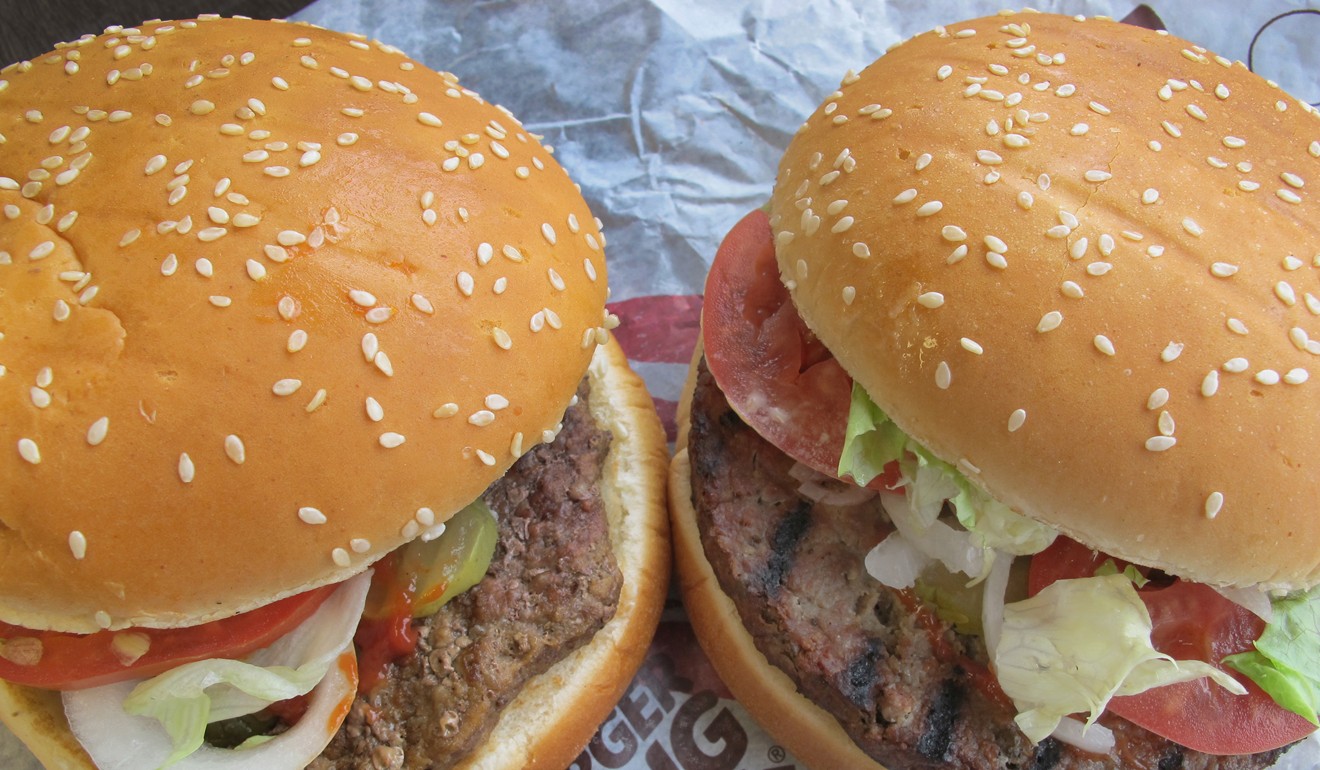
One of Beyond Meat’s first high-profile restaurant backers was The Butcher’s Club, a Hong Kong restaurant chain dedicated to steaks and burgers, which launched the Beyond Burger in April 2017. Since then, it has added a Beyond Burger featuring Asian ingredients called the “Wu Tang”. Ricky Lai, the chief executive of FWM Restaurants, which owns Butcher’s Club, said sales of vegetarian burgers were “in the double digits”, and its restaurants in Beijing, Shanghai, Shenzhen and Bali serve Beyond Meat burgers when supplies are available.
Yeung said 15 per cent of Butcher’s Club sales are now from Beyond Meat. For his part, he has been expanding Beyond Meat sales into Singapore and Taiwan, with plans to expand into Thailand and China this year.
Impossible Foods Hong Kong has partnered with high-end restaurant Beef & Liberty. In April 2018, Beef & Liberty introduced the Impossible Burger. According to its marketing director, Kim Plaggenburg, the Impossible Burger immediately jumped into its top 3 bestselling burgers. The chain now offers to switch any of its beef burgers with an Impossible Burger.
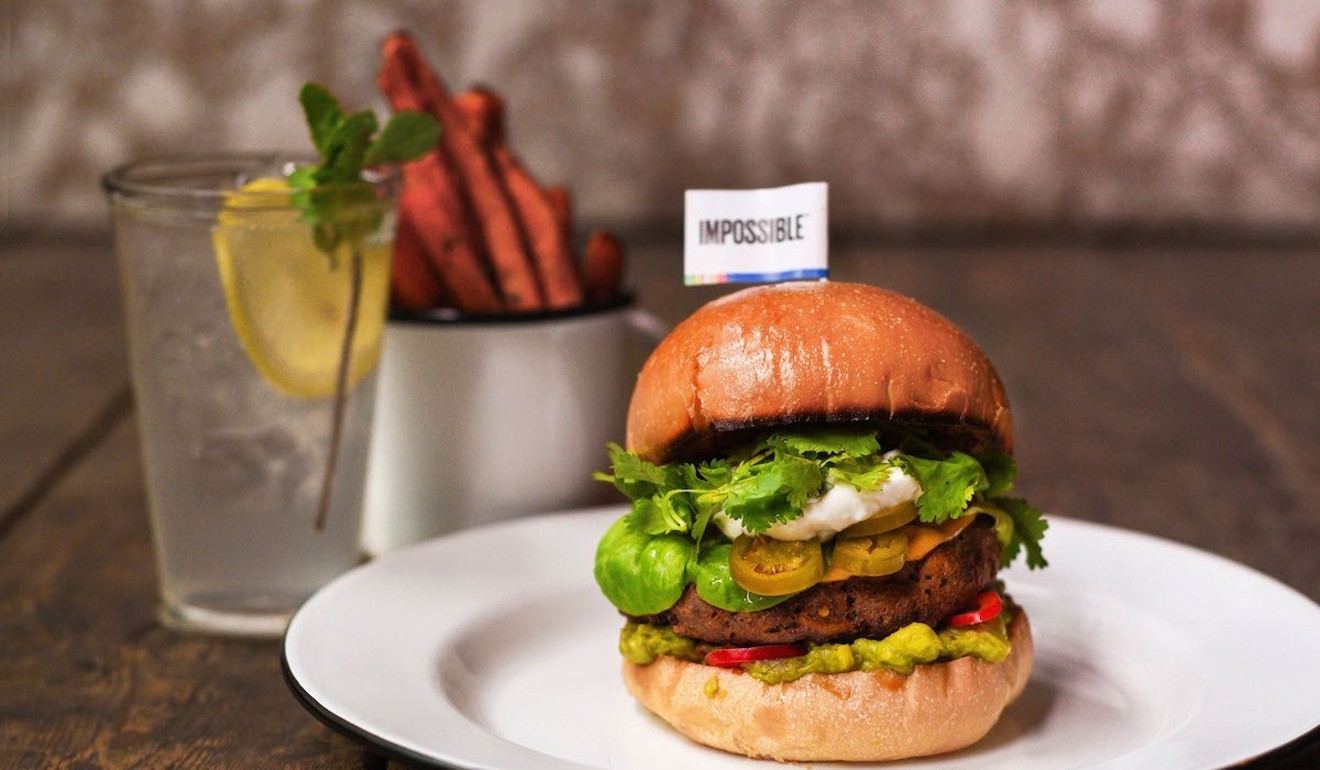
“We believe Impossible bridges the gap between going from eating meat in all meals to extreme veganism. It’s a good stepping stone,” she said.
The company is following a strategy similar to Beyond Meat’s. Impossible Foods’s Nam said it has added 160 restaurants to its list of outlets in a year.
There will be more competition soon. Tyson Foods, one of the world’s biggest meat suppliers, was also an investor in Beyond Meat through its investment arm. Since then, Tyson has announced it will develop its own plant-based meat products, as will Nestle. In April, Canadian meat-processing company Maple Leaf announced plans to spend US$310 million building a 230,000 sq ft processing plant in the US, doubling its capacity in such products.
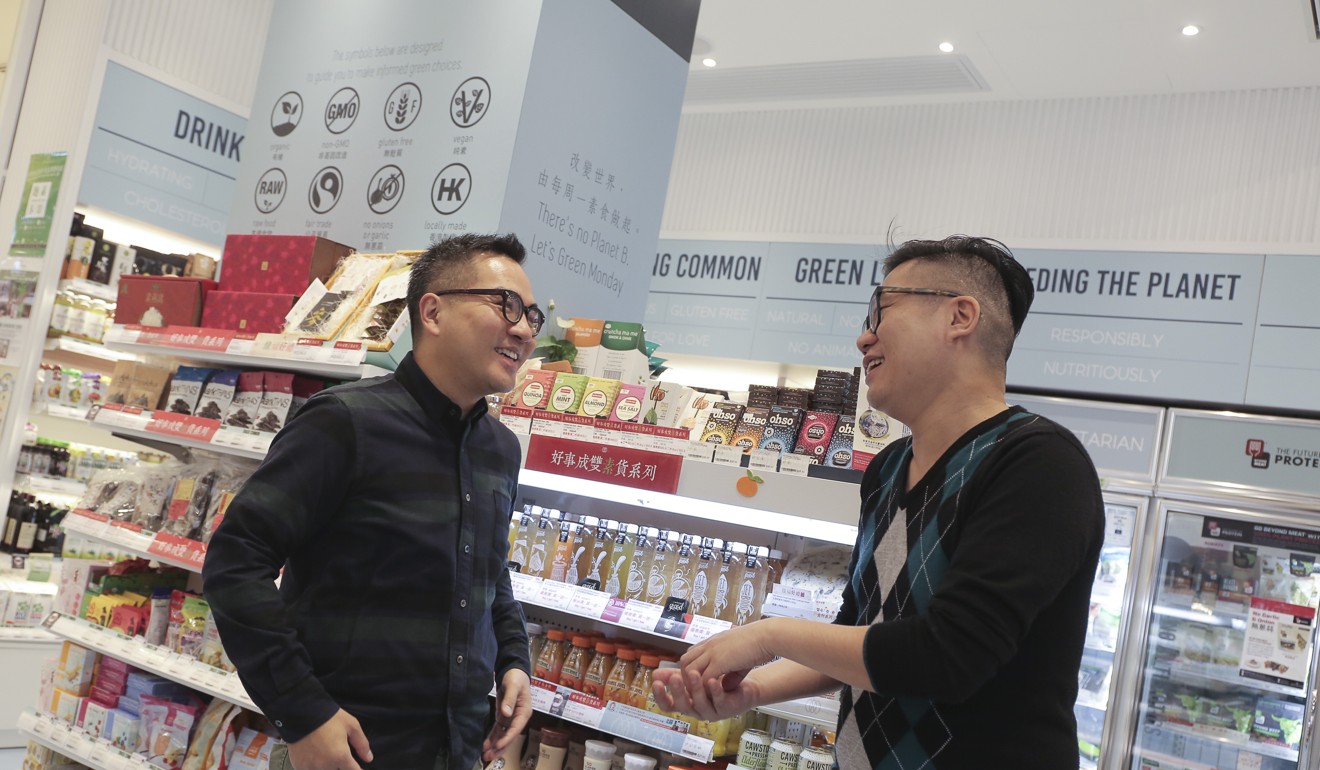
Competition may also emerge in Asia. Green Common’s Yeung has started his own plant-based product, Omnipork, which caters to Chinese people’s preference for pork. Thanks to production based in Thailand, frozen Omnipork products retail for 30 per cent less than chilled US minced pork in Hong Kong. Yeung emphasised that Omnipork is not connected with Beyond Meat.
The possibility of reduced pork supply in China due to African Swine Fever has added to Yeung’s prospects. “People are looking for alternatives,” he said.
Omnipork, Beyond Meat and several other plant-based meat alternatives are available for retail in Hong Kong, but Impossible Foods has not yet joined the fray. Revenues in the city are still dominated by sales to restaurants and food services, according to Yeung.
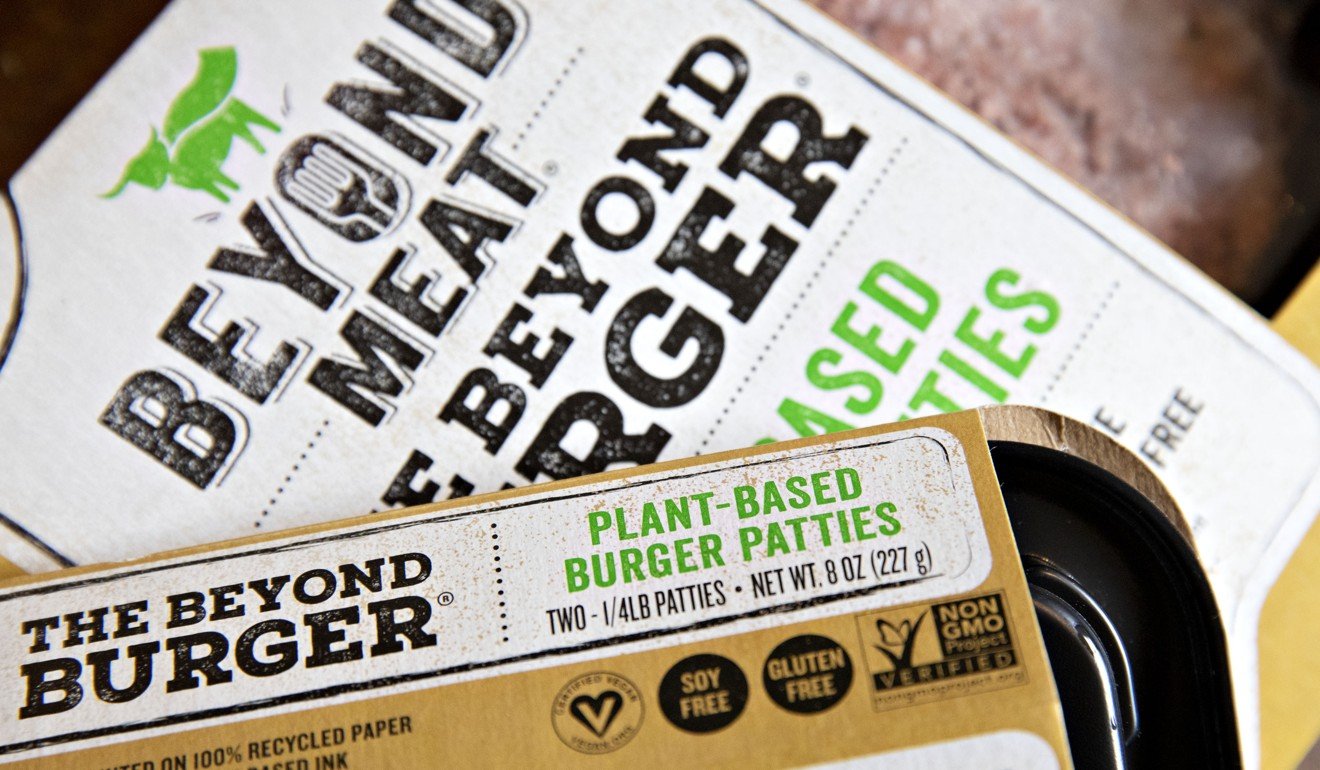
Impossible Foods may be encouraged to list by Beyond Meat’ performance, but Lee, its CFO, said the company was expected to already be “operating at the highest standards of rigour”, thanks to its institutional investors.
Both Impossible Foods and Beyond Meat will be on display at this year’s HOFEX show in Hong Kong, where food and beverage outlets search for new suppliers.

